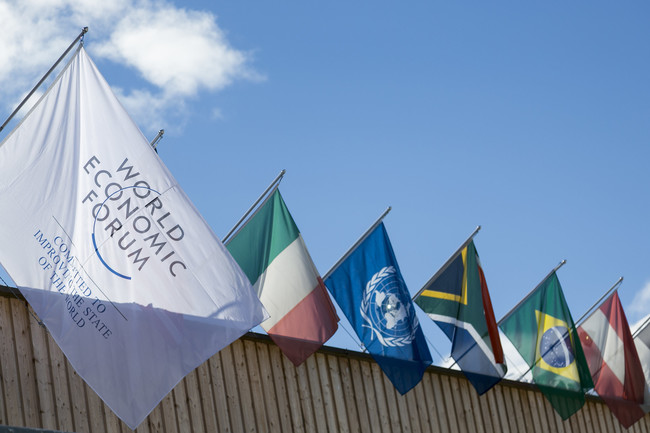Riyaz Patel
It is that time of the year when world leaders, the business and economic elite and civil and cultural society bigwigs all converge on the Swiss ski resort of Davos for the World Economic Forum’s (WEF) annual meeting.
The Forum generates a lot of headlines but many are less than complimentary to the Alpine meeting of the world’s most influential political, economic and business leaders, claiming the annual meeting has big dreams but few achievements.

Around 2,800 global leaders, business people, policymakers and public officials are attending the event in the ski resort of Davos in Switzerland, representing the cream of the political and economic world.
That’s 300 fewer people than last year, which a WEF spokesperson said was because there are more meetings through the year, so the focus is on bringing the “most senior leaders” to Davos.
This has not stemmed criticism of the Forum and its attendees — often referred to as the “party of Davos” — who are viewed as the “elite” and hence “out of touch with the real world.”
Critics call it a “club for rich businessmen” who say they have good intentions but who only care about their own interests and do business in private in Davos.

Others view the WEF as the promoter of globalisation, which they say has increased poverty and destroyed the environment.
The WEF strongly rebuffs such accusations, saying that it is “committed to improving the state of the world,” a mission that’s hard to argue with in terms of its aspirations.
“People are revolting against the economic ‘elites’ they believe have betrayed them,” said Professor Klaus Schwab, Founder and Executive Chairman at the World Economic Forum.
“With the world at such critical crossroads, this year we must develop a ‘Davos Manifesto 2020’ to reimagine the purpose and scorecards for companies and governments. It is what the World Economic Forum was founded for 50 years ago, and it is what we want to contribute to for the next 50 years,” he added.

Davos also robustly defends itself from the ‘big schmooze for the well-heeled and well-off’ label, saying its annual themes are a catalyst for discussion and debate, resolution, and joint action to try to make the world a better place.
Davos Is Damn Expensive
WEF brings together what it calls “stakeholders” in both public and private organizations and sectors and getting in is not cheap.
Annual membership and partnership fees range from 60,000 Swiss francs to 600,000 Swiss francs “depending on the level of engagement,” Swissinfo reports.

Most types of membership include the opportunity for the company president, CEO or director to participate in the annual WEF meeting in Davos. But to do so they must also pay an entrance fee which costs roughly 25,000 Swiss francs.
A select group of 100 large multinationals such as ABB, Nestlé, Barclays, Credit Suisse, Deloitte, Deutsche Bank, Google and Saudi Aramco participate in agenda decisions and provide the bulk of the funding.
In total, they contribute over 240 million Swiss francs to the annual WEF budget.
Some 1,200 other companies, including the 1,000 largest in the world, according to the WEF, pay over 27 million Swiss francs for annual membership.
Non-business participants in the meeting — from heads of state to leaders of the arts — do not pay to participate, however.

To guarantee ground and air security during the annual meeting, the Swiss defence ministry may deploy up to 5,000 of its staff, costing around 32 million Swiss francs.
A new record of close to 1,500 private jet flights are expected this week at airports around Davos.
President Cyril Ramaphosa, UK Prime Minister Boris Johnson, Brazilian President Jair Bolsonaro and Japanese Prime Minister Shinzo Abe are notable absentees this year.
The heads of Oxfam and Amnesty International have also skipped the 2020 WEF.
In 1975, a national delegate attending an international conference on the global economy quipped: “Who do you expect will be at this conference in 100 years? France or General Motors?”
“So, it is important to look behind the headlines and understand that the WEF is changing the very architecture of global governance by handing major parts of it over the private elites, with acquiescent politicians grateful to be welcomed in as honorary members of the most exclusive club in the world,” said Harry Blutstein Adjunct Professor, School of Global Studies, Social Science and Planning , RMIT University

“Unless governments can make existing international organisations works by putting aside parochial politics and cooperating on global issues, the public interest will continue to be left to the tender mercies of unelected elites.”
Turning to the question of legitimacy, what is often overlooked is that the WEF is a private club, bankrolled by the corporate sector.
This allows them to decide who gets an invite and what is included on the program, handing them the unchallenged ability to shape the global agenda.
With input by Swissinfo.



